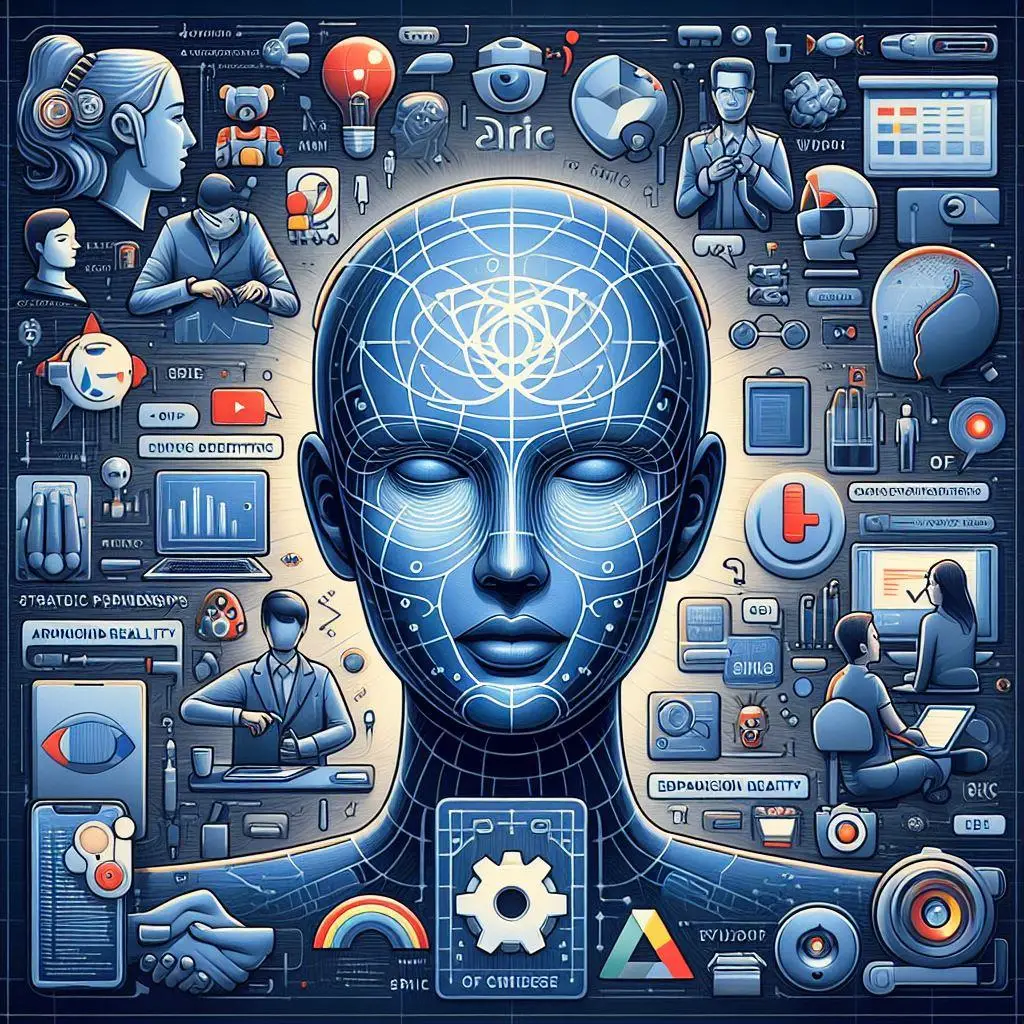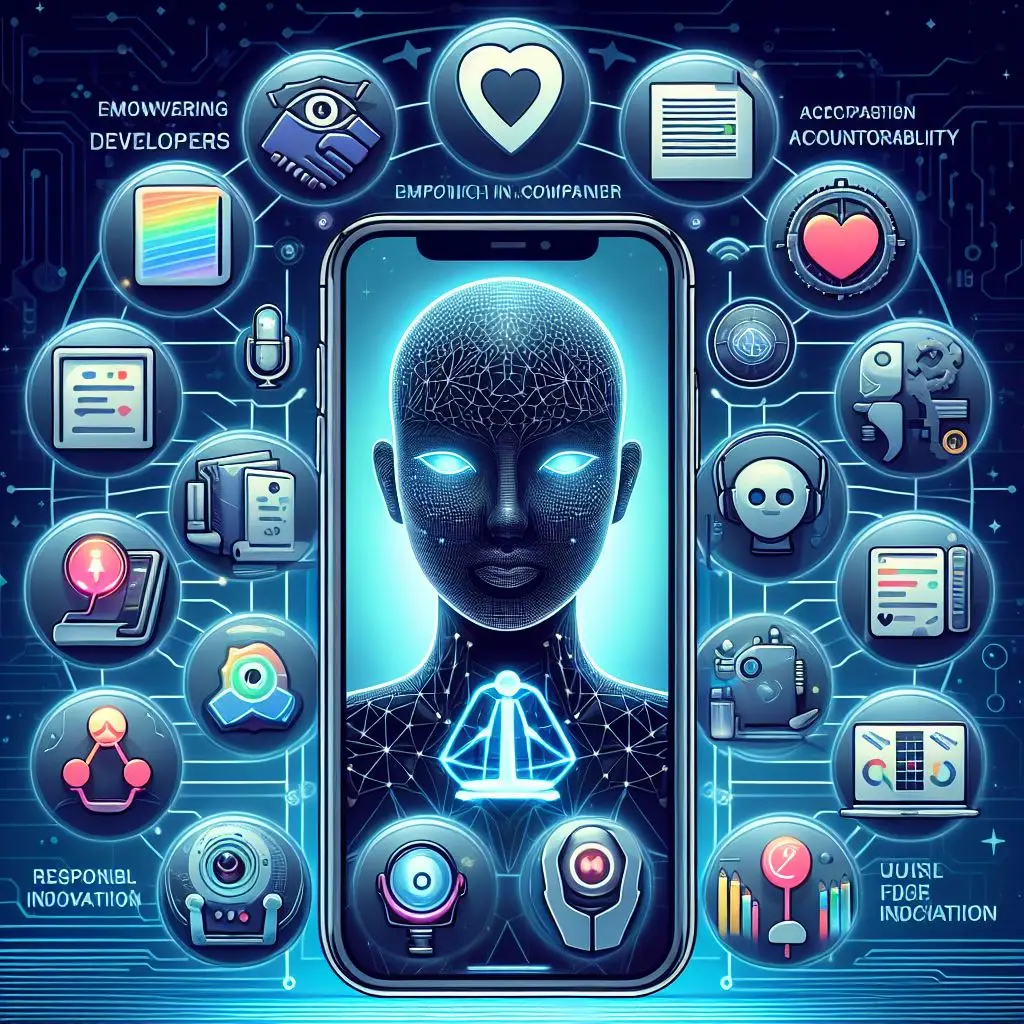Introduction
In the ever-evolving landscape of technology, the integration of artificial intelligence (AI) has become a pivotal focus for leading tech companies. A recent report from Bloomberg has unveiled intriguing negotiations between Apple and OpenAI, hinting at a potential collaboration that could reshape the future of iOS.
Revisiting Conversations
According to Bloomberg's report, Apple is revisiting discussions with OpenAI to incorporate the company's advanced AI capabilities into the forthcoming iOS 18 update. This move underscores Apple's strategic shift towards integrating cutting-edge AI technologies into its ecosystem.
Negotiating Terms
The negotiations between Apple and OpenAI are in full swing as both parties seek to establish mutually beneficial terms for a potential partnership. These discussions are likely centered around how OpenAI's features can seamlessly integrate into iOS 18 while maintaining Apple's commitment to user privacy and data security.
Countdown to WWDC
The timing of these negotiations is particularly noteworthy, as they precede Apple's highly anticipated Worldwide Developers Conference (WWDC), scheduled for June. This annual event serves as a platform for Apple to unveil its latest innovations and software updates, making it the perfect stage for any major AI announcements.
Speculations and Expectations
As the tech community eagerly awaits WWDC, speculation is rife regarding the nature and scope of Apple's AI endeavors. With the potential integration of OpenAI's features into iOS 18, analysts and enthusiasts alike are brimming with anticipation for what the future holds.
A Potential Game-Changer
If Apple and OpenAI successfully strike a deal, it could mark a significant milestone in the evolution of AI adoption. By embedding AI capabilities directly into iOS, Apple has the opportunity to democratize access to advanced AI technology for its vast user base of over 1.4 billion iPhone users worldwide.
Exploring All Options
In addition to negotiations with OpenAI, Apple is reportedly exploring another intriguing possibility – a deal with Google to license Gemini, its AI technology. This dual approach underscores Apple's commitment to leveraging the best-in-class AI solutions available in the market.
Licensing Gemini
Gemini, Google's AI technology, is renowned for its powerful natural language processing capabilities and advanced machine learning algorithms. By licensing Gemini, Apple could tap into a wealth of AI expertise and further enhance the intelligence of its ecosystem.
Striking Agreements
The prospect of Apple forging agreements with both OpenAI and Google reflects the tech giant's ambition to establish itself as a formidable player in the AI arena. By partnering with industry leaders, Apple aims to solidify its position at the forefront of AI innovation.
The Implications
The ChatGPT Moment
The reference to the "ChatGPT moment" in the report underscores the transformative impact that AI integration could have on Apple's ecosystem. Just as ChatGPT revolutionized conversational AI, the integration of advanced AI features into iOS could herald a new era of innovation and adoption.
Democratizing AI
One of the most significant implications of integrating AI into iOS is the democratization of AI technology. By making advanced AI capabilities readily accessible to millions of iPhone users, Apple is empowering individuals to leverage AI for various tasks and applications.
Enhancing User Experience
From intelligent virtual assistants to personalized recommendations, the integration of AI into iOS has the potential to enhance the overall user experience in myriad ways. By understanding user preferences and behavior patterns, iOS can deliver more intuitive and tailored experiences.

Privacy and Security
Amidst the excitement surrounding AI integration, concerns about privacy and security inevitably arise. Apple has long been committed to safeguarding user data and prioritizing user privacy, and any AI features integrated into iOS will be subject to stringent privacy measures.
Balancing Innovation and Ethics
As AI technology continues to advance, the ethical implications of its use become increasingly complex. Apple faces the challenge of balancing innovation with ethical considerations, ensuring that AI is deployed responsibly and ethically across its ecosystem.
OpenAI's involvement in the negotiations signifies the company's growing influence in the AI landscape. Renowned for its cutting-edge research and commitment to AI ethics, OpenAI brings a wealth of expertise and innovation to the table.
Leveraging Google's Expertise
In exploring a potential partnership with Google to license Gemini, Apple is tapping into the vast reservoir of AI expertise that Google possesses. Gemini's advanced capabilities could complement OpenAI's offerings, further enriching the AI ecosystem within iOS.
Strategic Partnerships
The pursuit of partnerships with both OpenAI and Google reflects Apple's strategic approach to AI integration. By leveraging the strengths of multiple partners, Apple aims to create a robust and versatile AI platform that caters to diverse user needs.
The AI Arms Race
The negotiations between tech giants like Apple, OpenAI, and Google underscore the intensifying competition in the AI space. As companies vie for dominance in AI research and development, strategic partnerships and collaborations have become increasingly commonplace.
Anticipating WWDC
With WWDC on the horizon, anticipation is reaching a fever pitch within the tech community. The event promises to unveil a slew of groundbreaking announcements, including potential AI integrations that could reshape the future of iOS and the broader tech landscape.
Evolution of iOS
The integration of AI into iOS represents the latest chapter in the ongoing evolution of Apple's flagship operating system. From its inception to the present day, iOS has undergone significant transformations, continually adapting to technological advancements and user preferences.
From Siri to Advanced AI
Since the introduction of Siri, Apple's voice-activated virtual assistant, AI has played an increasingly central role in the iOS ecosystem. However, the potential integration of OpenAI's advanced AI features could elevate iOS to new heights of intelligence and sophistication.
Personalization and Predictive Capabilities
One of the key benefits of AI integration is its ability to deliver personalized experiences and predictive capabilities. By analyzing vast amounts of data, AI algorithms can anticipate user needs and preferences, streamlining tasks and enhancing efficiency.
Augmented Reality and Beyond
Beyond traditional smartphone functionality, AI integration opens up new possibilities in areas such as augmented reality (AR) and computer vision. With AI-powered features, iOS could unlock immersive AR experiences and innovative applications across various industries.
Education and Accessibility
The democratization of AI through iOS has significant implications for education and accessibility. By making AI technology accessible to a broad user base, Apple has the potential to empower individuals of all ages and abilities to learn, create, and innovate.
Bridging the Digital Divide
As AI becomes increasingly ingrained in everyday life, addressing the digital divide becomes paramount. Apple's commitment to accessibility and inclusion means that AI features integrated into iOS will be designed to cater to diverse user demographics, bridging gaps in digital literacy and access.

Empowering Developers
Central to Apple's ecosystem is its vibrant community of developers, who play a crucial role in shaping the future of iOS. The integration of AI opens up new avenues for developers to create innovative apps and services that leverage the power of machine learning and natural language processing.
Developer Tools and Resources
In conjunction with AI integration, Apple is expected to provide developers with robust tools and resources to harness the full potential of AI within their apps. From machine learning frameworks to AI 29. training libraries, developers will have access to a comprehensive suite of resources to integrate AI seamlessly into their applications. By fostering a supportive ecosystem for AI development, Apple aims to catalyze innovation and drive the creation of compelling user experiences.
Ethical AI Development
As developers harness the power of AI to create innovative solutions, ethical considerations must remain paramount. Apple has a responsibility to ensure that AI technologies integrated into iOS adhere to ethical guidelines and promote responsible use. This includes addressing issues such as bias, transparency, and accountability in AI systems.
Transparency and Accountability
Transparency in AI algorithms and decision-making processes is essential to foster trust among users. Apple must provide clear explanations of how AI features operate within iOS, ensuring users understand how their data is being utilized and empowering them to make informed choices about their privacy and security.
Safeguarding User Privacy
Privacy has always been a cornerstone of Apple's ethos, and the integration of AI into iOS is no exception. Apple must uphold its commitment to user privacy by implementing robust privacy safeguards and stringent data protection measures. This includes minimizing data collection, anonymizing user information, and giving users control over their data.
Regulatory Compliance
In an era of increasing regulatory scrutiny around data privacy and AI ethics, Apple must ensure that its AI integrations comply with relevant laws and regulations. By proactively addressing regulatory requirements, Apple can mitigate legal risks and demonstrate its commitment to responsible AI development.
User Education and Empowerment
Empowering users to understand and control their interactions with AI is crucial to fostering trust and confidence in the technology. Apple should provide user-friendly education resources and tools within iOS to help users navigate AI features, manage their data privacy settings, and make informed decisions about their digital experiences.
Collaboration and Accountability
In its partnerships with OpenAI and potentially Google, Apple must prioritize collaboration and accountability to ensure the success and ethical integrity of its AI initiatives. This includes establishing clear guidelines and mechanisms for oversight, feedback, and continuous improvement throughout the development and deployment process.
Advancing AI Research and Ethics
As a leading player in the tech industry, Apple has a unique opportunity to contribute to the advancement of AI research and ethics. By investing in research initiatives, supporting academic partnerships, and participating in industry-wide collaborations, Apple can help shape the future of AI in a manner that aligns with its values and principles.
The Societal Impact of AI
Beyond the realm of technology, the integration of AI into iOS carries profound societal implications. From healthcare and education to transportation and entertainment, AI has the potential to transform every aspect of human life. Apple must consider the broader societal impacts of its AI initiatives and strive to maximize positive outcomes for all stakeholders.
Nurturing Responsible Innovation
As Apple embarks on its AI journey, it must remain steadfast in its commitment to responsible innovation. This entails not only developing cutting-edge AI technologies but also ensuring that they are deployed in a manner that prioritizes ethics, inclusivity, and social good. By fostering a culture of responsible innovation, Apple can lead by example and inspire others to follow suit.
Looking Ahead
As WWDC approaches and the negotiations with OpenAI and Google unfold, the tech world eagerly awaits Apple's next move in the AI space. Whether it's the integration of OpenAI's features, the licensing of Gemini, or a combination of both, the future of iOS is poised to be AI-driven and full of promise.
Conclusion
Apple's potential partnership with OpenAI and Google represents a significant step forward in the evolution of AI integration within iOS. With the promise of advanced AI features, enhanced user experiences, and a commitment to ethics and privacy, Apple is poised to usher in a new era of intelligent computing that empowers users and enriches lives. As the tech landscape continues to evolve, Apple's leadership in AI innovation will undoubtedly shape the future of technology and society for years to come.









Add a Comment: